#Sunset at Poseidon' temple
Explore tagged Tumblr posts
Text
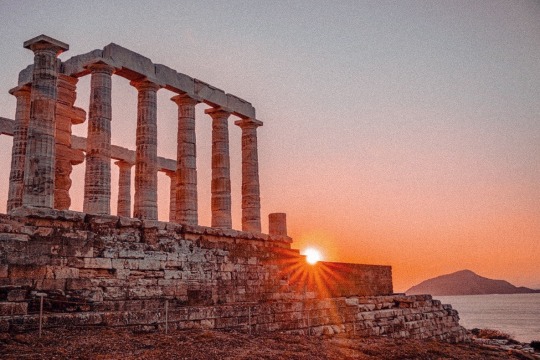
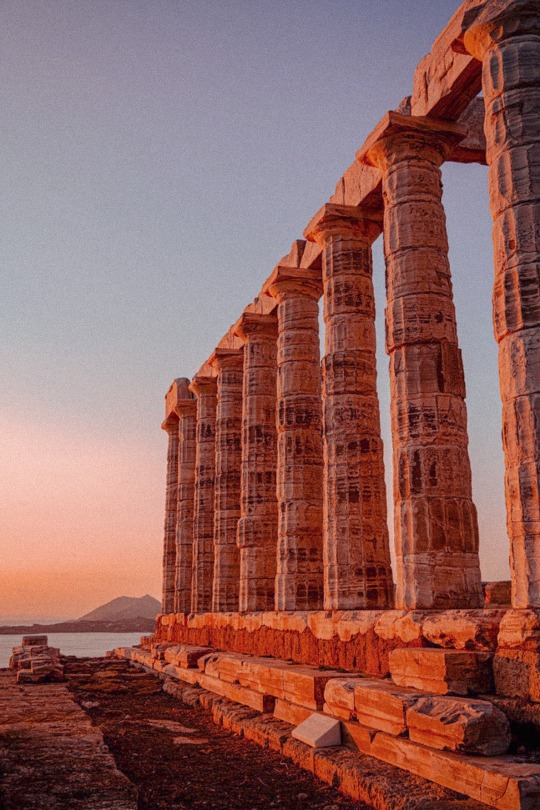
temple of poseidon, sounion, greece
#temple of poseidon#sounion#greece#ancient greece#film photography#filmisnotdead#architecture#ancient history#archaeology#ruins#ocean#sea#sunset#pastel#photographers on tumblr#original photographers#lensblr#diary
1K notes
·
View notes
Photo

Temple of Poseidon, Cape Sounion by George Dimitriou.
#greece#europe#sunset#travel#temple#ancient greek temple#seascape#landscape#places#poseidon#temple of poseidon#sounion#cape sounion#sounio#attica#sterea hellas#central greece#mainland
937 notes
·
View notes
Text






Photos and more photos
#temple of poseidon#it was very cool to go there at sunset#photos#last day of Athens#now in the airport waiting for our flight to the next stop#it is 5am and i have slept 1 hour
13 notes
·
View notes
Text




Greece
(pictures not mine)
#athens#kos#temple of poseidon#sounion#greece#ancient greece#mediterranean#beautiful#i WILL go here one day#scenic#sunset
1 note
·
View note
Text


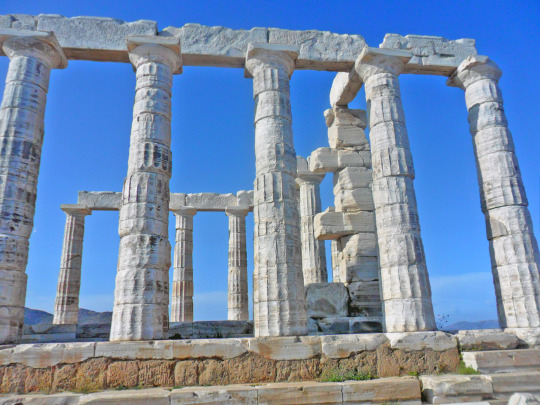

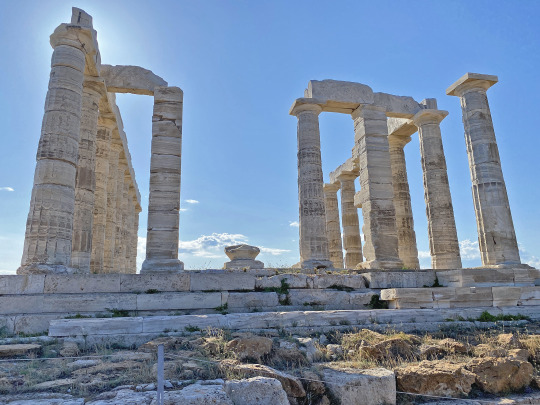
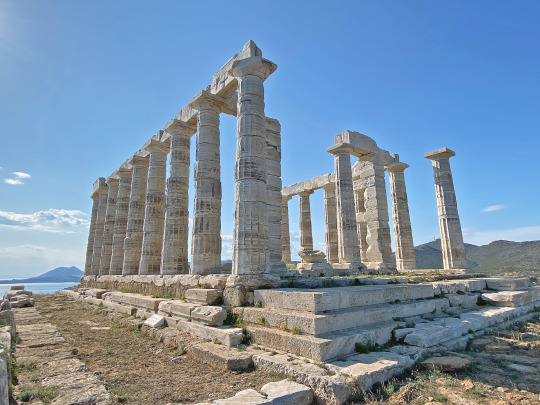
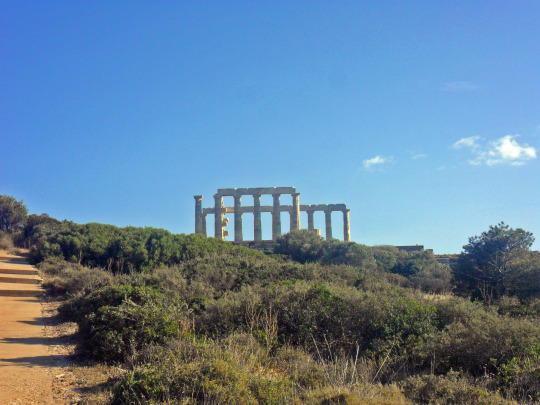
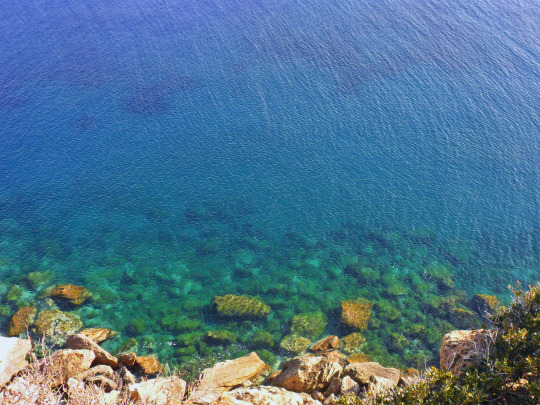
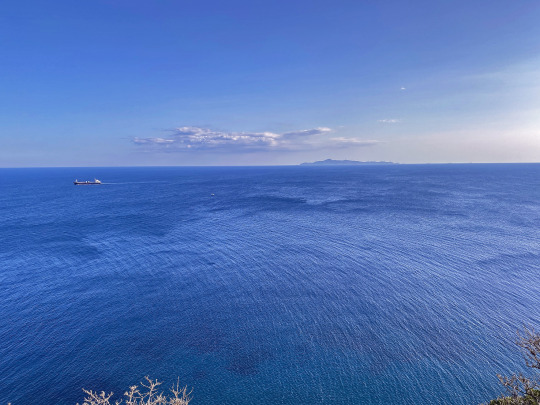
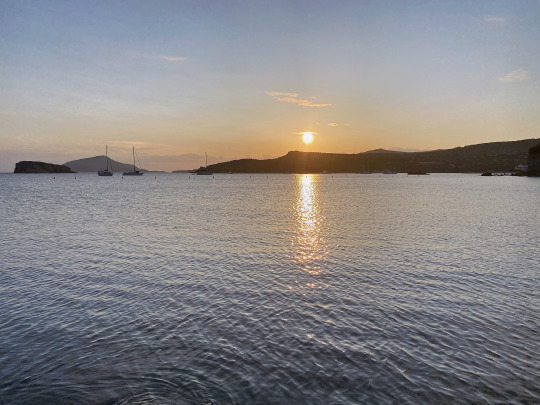
The evening we spent in Σουνιον is probably one i won't forget. It was SO NICE in there, from the moment i got out of the car i could smell the sea and feel the wind, because IT'S ALWAYS WINDY near the temple, confirmed by the locals xD
The Poseidon temple is gorgeous, again, untouchable, but still. And it wasn't overwhelming, like other ruins we visited. It was just nice, surrounded by pretty landscapes. Yes, probably Aegeus jumped from there, which is not a nice story, but...
Because many tourists wanted to watch the sunset from the temple and it was getting crowded, we left and went to a little beach nearby, and it was so relaxing, it was years since last time i was in the sea. I was collecting these without moving from the towel:

I only took with me 2 or 3 pieces, the rest stayed in the beach :) It was so relaxing and... healing, let's say. Then the sun set and we started to hear a whistle from the temple for the tourists to leave so they could close the installations already xD
What a nice place <3
2 notes
·
View notes
Text
What is Praying in Hellenism?
Prayer was an essential part of religious practice in the polytheistic traditions of ancient Greece, known as Hellenism.
Hellenistic worshippers would direct prayers to specific gods and goddesses who were believed to have dominion over different aspects of life. Common recipients included the 12 Olympians, and many other deities.
Prayers often began with an invocation of the deity's names and titles, followed by the worshipper's requests or offerings. These might include appeals for protection, blessings, guidance, or the fulfillment of a vow.
Prayers were frequently offered before important events and activities, such as the start of a journey, a battle, a harvest, or a religious ritual. Daily household prayers were also common.
The prayers were usually delivered orally, sometimes accompanied by ritual actions like libations or burnt offerings. The language used was often formal and poetic, full of honorific epithets for the deity.
Locations for prayer included temples, shrines, sacred groves, and the home. Worshippers might pray while standing, kneeling, or prostrating themselves before an image or altar of the god or goddess.
The desired outcomes of Hellenistic prayer ranged from practical requests for prosperity, health or victory to more spiritual appeals for wisdom, justice or the favor of the divine.
Prayer was a central part of ancient Greek religious life, and even to this day, praying is very important and a big part in Hellenism or in general for every religion.
Praying in Modern Hellenism
Set Up a Home Shrine or Altar Many Hellenic polytheists maintain a home shrine or altar space dedicated to the gods. This can be as simple as a small table with statues, candles, flowers, or other symbolic objects. Establishing a consistent sacred space can help focus the mind during prayer.
Choose Your Deities Hellenism is a polytheistic tradition, so you can direct your prayers to whichever gods, goddesses, or divine beings you have the strongest connection or need to address. Common choices include Zeus, Hera, Athena, Apollo, Artemis, Poseidon and many others.
Offerings Prayers are often accompanied by physical offerings like libations of wine or honey, burned incense, or small symbolic gifts. Consider what would be appropriate and meaningful for the deity you are praying to.
Use Formal, Poetic Language When crafting your prayers, aim for a formal, reverential tone. Use the full names and titles of the deities, and include honorific epithets if possible. Poetic, metaphorical language is common in Hellenic prayer.
Perform Ritual Gestures You may choose to incorporate ritual movements like standing, kneeling, bowing, or making specific hand gestures during your prayer. These physical actions can help focus the mind and honor the divine.
Establish Regular Prayer Times Many Hellenic polytheists pray daily, either at set times like sunrise/sunset or in response to specific events or needs.
#hellenic deities#deity#hellenic polythiest#devotees#deity worship#greek deities#hellenism#hellenic polytheism#ancient greece#religion#modern paganism
206 notes
·
View notes
Text
jotaro x f!reader. cw alcohol, age gap implied, unhealthy relationship implied. | divider by @cafekitsune, wc 1.3k

JK (DO NOT REPLY!): Want to get a beer tonight?
As if it’s mocking your twiddling thumbs, blinking in a beat with the laughter you hear in the back of your head, the cursor sits anxiously in the chat bubble just inches away from your face.
It’s 9:17 pm. It’s the eighteenth evening in August and as if a cosmic flip switched reminding him that it’s once again time to squeeze the last joy he can out of this year, Jotaro texts you. Just as he did last year. And the year before that. And the one before that…
Sighing, you tap out a quick “wrong number” and hover over the send button for a second longer than you actually want to. That second pushes you to highlight the entire text and erase it, a bubble indicating he’s typing popping up.
It disappears as quickly as it shows itself. You know it’s a take it or leave it offer.
Leaning against the wall in your bathroom, staring at your own towel clad reflection in the mirror on the opposite wall, you groan the eagerness written all over your face. You know how this will go yet you can’t seem to learn better after all these years of the same rinse and repeat.
From August to October, Jotaro Kujo will be yours.
If you agree to go out with him tonight, he’ll come home with you. It’s a certainty, you can even feel warmth between your legs imagining welcoming him home for the first time in more than half a year. He’ll fall asleep next to you, wake up to make breakfast, kiss you on the temple and mumble an indistinct promise about seeing you later.
That later could be two days. One week. Two weeks. You don’t know exactly when it’ll happen but the second time he spends the night will be in the dog days of summer. Those fourteen sticky days that make you wish you existed anywhere but the sultry Gulf coast of Florida, the sun practically punishing you for attempting to distract from her shine when she catches wind of the way he gazes down at you even when she’s out.
He’ll come by your office at the Speedwagon Foundation, two buildings away from where his is located. You will be asked to join him for some evening research which is really just an excuse for him to take you out on a research vessel, a small bit comfortable speedboat, to catch one of those gorgeous sky painted sunsets. To review research. To talk, to silently enjoy one another’s company until the tension becomes too much and he kisses you while the stars wake from their daybed.
These stars will bring him home to you. You’ll spend your evening with your fingers tangled in sea-salt waved black hair streaked with gray. The dim lamp in your room will illuminate him for the faintest moment when you’re enjoying him afterward, still impeccably toned arms for his age wrapped around your waist. You’ll wonder, briefly, how you managed to catch Poseidon with nothing more than a worm on a hook.
The cold air of your apartment, technically a condo as you’ll correct him when he gives you shit about still not owning a home, will lull both of your heated bodies to sleep. A tangle of limbs, wishes and hopes that maybe August doesn’t have to leave so quickly though she’s days away from being a memory as the months before her.
September will have him in your bed every night.
“We’re headed to the same place in the morning,” he’ll deadpan through kisses though you’ll catch the tiniest note of amusement in his tone. “May as well.”
You won’t argue. Not when the proverbial clock is running out, the hot Florida summer fading into a less sticky fall. Maple trees across the Speedwagon Foundation campuses will rustle overhead while you walk in tandem through the courtyard, parting ways at the building that houses the corporate offices to your respective research labs.
The two of you will officially be put on winter standby at the end of September. This means the rest of the year will be spent stapled to desks, laptops writing grant requests for the first quarter of next year, and each other.
Your legs will be draped across his lap feeding him Halloween candy despite his protests. He’ll watch you stumble out of bed wearing nothing but his shirts that come down to your knees. You’ll cook dinner, he’ll come home to you or even more blissfully you’ll arrive together, at the same time, almost as if you’re a real couple.
November is when the cracks will begin to show. It isn’t restlessness that drives him from you, you realized several years ago, it’s fear.
“Do you want to spend Thanksgiving with my sister this year? She finally has room for us to stay.” You’ll ask, innocently, hoping for once you will get a resounding yes. A please. Anything that can help you believe this love is tangible, something he feels and wants, and not just an inevitability.
Instead you’ll get a non-committal hum.
“Have to check with my mom first. I’m sure she’ll find an excuse to come stateside.”
You’ll feel your heartbeat though instead of the usual warmth that fills you when you think of him it’ll be cold, the winter not yet making its way into the air but making its way into you. This is how it will always be.
By December he’ll be infrequently staying with you, if he is at all, flying between Tampa and Tokyo to visit his family. At least the members of it who are still living and want to see him. You’ll lay in bed, sniffling and recalling all of the times you’ve beamed with pride from the crowd while he’s spoken as Dr. Kujo.
How every time he’s made eye contact with you and smiled at you and you alone. How you’re the only one who even knows he’s smiling in the first place, the corner of his lip turned up just enough to expose a deep dimple.
You’ll be ready to call it off yourself by New Year. You even already know what you’ll send, a little bit tipsy from champagne and full of enough good cheer to keep the blues away.
You: i hope this one treats you better, jojo. happy new year ❤️
Jotaro will wake up, half a day ahead of you already in his homeland, and he’ll feel guilty. He’ll stare dumbly at his phone, that cursor blinking in the same cadence as your laughter. It’s a sound he can hear if it’s quiet for longer than a second, your inhale and exhale both.
He’ll stand and stare at himself in the mirror just as you are now, wondering what the right decision is. Can you forgive him if he doesn’t reach out to you again until next August? How many summers are left until what’s left of your patience runs out?
Rolling your shoulders, you pick up your phone and your thumbs work to type out a quick message.
You: been a while. reservoir in about 45? bet they’re dead tonight.
You don’t have the strength it takes to tell him no and he won’t either when he sees the name of your shared favorite spot. Not when your heart pounds as that same bubble pops up and disappears again, anxiety making every bit of you turn until a message appears on screen.
JK (DO NOT REPLY!): Sorry about that. We can talk about it more soon. Be careful.
The hourglass has already begun pouring its sand, the message the same as it always is. Sorry, see you later, let’s do it again. A stronger woman would take her own all caps, glaring advice but unfortunately you prefer to honor what the hands of fate hold for you, more enamored with a man whose love has a time limit more than you are yourself.
At least you’ll get him for five months.
86 notes
·
View notes
Text

“One can ascend to a higher development only by bringing rhythm and repetition into one's life. Rhythm holds sway in all nature.” ― Rudolf Steiner Temple of Zeus - Olympia Talon Abraxas
Everything that is outside in space is also within us. Today man does not yet recognise the complete harmony which exists between the mysterious forces at work in himself, and the forces active outside in the macrocosm; indeed he probably regards that as a fantastic daydream. The ancient Greek could not say what I say today about these things, because he could not penetrate the matter with intellect, but it lived in his subconscious, he saw it, or felt it clairvoyantly. If today we wish to express in up-to-date phraseology what the Greek felt, we must say that he felt working within him the forces which caused thought to flash up, and felt that they were the same forces which organised the rainbow without. That is what he experienced. And he said to himself: ‘If there are psychic forces within me which cause thought to flash up, what is it that is without? What is the spiritual force in the widths of space, above and below, right and left, before and behind? What is it outspread there in space which causes the rainbow to flash up, causes the sunrise and the sunset, causes the glimmer and the glory of the clouds, just as within me the forces of the soul bring forth thought?’ For the ancient Greek it was a spiritual Being who gave birth out of the universal ether to all these phenomena—to the roseate tints of sunrise and sunset, to the rainbow, to the glimmer and the glory of the clouds, to thunder and lightning. And out of this feeling, which, as I said before, had not become intellectual knowledge, but was elemental feeling, there arose the intuitive perception, ‘That is Zeus!’ One does not get any idea, still less any sense of what the Greek soul experienced as Zeus, if one does not approach this experience and this feeling by way of the spiritual-scientific outlook. Zeus was a Being with a clearly defined form, but one could not get an idea of him without the feeling that the forces which cause thought to light up in us are also at work in what flashes up externally, such as the rainbow and so on. But today in anthroposophical circles, when we look into the human being and try to learn something of the forces which call forth in us thoughts, ideas—the forces which call forth all that flashes up in our consciousness—we say that all this constitutes what we call the astral body. In this way, having the microcosmic substance, the astral body, we can give an answer in terms of Spiritual Science to the question we have just put in a more pictorial way, and we can say that as a microcosm we have in us the astral body … we can then ask ourselves what corresponds without in the widths of space to the astral body—what fills all space right and left, behind and before, above and below? Just as the astral body extends throughout our microcosm, so is the universal ether, so are the wide expanses of space, permeated with the macrocosmic counterpart of our astral body, and we can also say that what the ancient Greek pictured to himself as Zeus is the macrocosmic counterpart of our astral body. In us we have the astral body, it causes the phenomena of consciousness to light up; without extends the astrality from which, as from the cosmic womb, is born the rainbow, the sunrise, the sunset, thunder and lightning, clouds and snow. The man of today can find no word to cover what the Greek thought of as Zeus, and which is the cosmic counterpart of our astral body. -Rudolf Steiner
21 notes
·
View notes
Text
Have u ever seen this ? The Poseidon Temple in the outskirts of Athens.
The Temple of Poseidon is an ancient Greek temple on Cape Sounion, Greece, dedicated to the god Poseidon. There is evidence of the establishment of sanctuaries on the cape from as early as the 11th century BC.
Sounion's most prominent temples, the Temple of Athena and the Temple of Poseidon, are however not believed to have been built until about 700 BC, and their kouroi (freestanding Greek statues of young men) date from about one hundred years later.
The material and size of the offerings at the Temple of Poseidon indicate that it was likely frequented by members of the elite and the aristocratic class.
#sunset #sunsetlovers #sounio #visitgreece #athens
10 notes
·
View notes
Text

Watching the sunset on the hills of the temple of Poseidon, tonight really was magical 🖤
6 notes
·
View notes
Text
FUCK YOu- Makes My Favorite TD Sons into Gods for a Future Fanfic!
Brody: The Beach God of Friendship and Revelry
Brody
Conceptualize the God:
Purpose and Domain: Brody presides over the sun-kissed shores, where laughter, camaraderie, and celebration thrive. His domain encompasses friendship, self-discovery, and the joy of living.
Inspiration: Brody draws inspiration from Poseidon’s connection to the sea and Psyche’s enigmatic wisdom. However, he is uniquely himself—a blend of beach vibes, laughter, and deep insights.
Name and Titles:
Name: Brody, a name that echoes the crashing waves and the warmth of sandy beaches.
Titles: Brody is known by various titles:
Beau of Brody: The charming companion of all beachgoers.
Beach God: The deity who dances with the tides.
Broship: The guardian of friendships.
Darling: The endearing presence that lingers in sunsets.
Sand Dollar: Symbolizing abundance and hidden treasures.
Sea Lover: The heart that beats in rhythm with the ocean.
Handsome: A nod to his irresistible allure.
Origin Story:
Creation Myth: Brody was once a mortal, lost at sea while saving others. The goddess of the waves, touched by his selflessness, breathed life into him using seafoam. Thus, Brody emerged as the Beach God, forever bound to the ocean’s embrace.
Divine Lineage: His mortal lineage intertwines with his adoptive mother—the goddess who bestowed upon him the gift of immortality.
Personality and Traits:
Personality: Brody exudes warmth, spontaneity, and an infectious zest for life. He’s the life of every beach party, yet his wisdom often leaves others puzzled. His laughter echoes across the waves, and his eyes hold secrets of the deep.
Symbols and Attributes: Brody’s symbols include seashells, sun-kissed skin, a surfboard, and a lyre that sings both joy and melancholy.
Worship and Rituals:
Followers: Brody’s worshippers include beachcombers, surfers, and those seeking solace by the shore. Priests perform rituals during sunrise and sunset.
Rituals: Devotees offer seashells, write heartfelt messages on driftwood, and dance barefoot in the sand. Festivals celebrate friendship, with bonfires and storytelling under the moon.
Relationships with Other Gods:
Allies: Brody shares a kinship with Yhi (the sun goddess) and Ganhanbili (the moon goddess). They collaborate to create the perfect beach days and nights.
Rivals: The storm gods challenge Brody’s calm seas, but he weaves their fury into mesmerizing waves.
Pantheon: Brody belongs to a coastal pantheon, where each deity governs an element of beach life.
Artistic Depictions:
Visual Representation: Brody has sun-kissed skin, tousled hair, and eyes that mirror the shifting tides. His attire blends beachwear with celestial elegance.
Artifacts: His sacred surfboard, a conch shell amulet, and a sun-bleached driftwood staff hold divine power.
Mythical Stories:
Legends: Brody’s tales involve beach bonfires that ignite friendships, seagulls that carry messages, and shipwrecks transformed into underwater gardens.
Interactions with Mortals: Brody occasionally walks among humans, disguised as a lifeguard or a beachcomber. He inspires artists, guides lost souls, and occasionally joins beach volleyball matches.
Cults and Temples:
Holy Sites: His temples stand where the waves kiss the shore. The most sacred spot is a hidden cove where dolphins play.
Cult Practices: Followers dance, sing sea shanties, and create sand mandalas during high tides.
Evolution and Influence:
Changing Beliefs: Over time, Brody adapts to beach culture, embracing new trends like paddleboarding and beach yoga.
Influence on Mortals: His presence inspires beach art, guides surfers to the perfect wave, and occasionally punishes litterbugs with sudden sandstorms.
Brody, the Beach God, we love and praise.
Duncan: The Chaotic God of Rebellion and Redemption
Duncan
Conceptualize the God:
Purpose and Domain: Duncan embodies rebellion against fate, loyalty to one’s true self, and unexpected acts of kindness. His wisdom is both profound and perplexing, leaving mortals questioning their own paths.
Inspiration: While echoes of Dionysus’s wild revelry and Hades’s underworld linger, Duncan’s essence is distinctly his own—a blend of chaos and redemption.
Name and Titles:
Name: Duncan, a name that resonates with defiance and hidden depths.
Titles:
Hellfire: The flames that consume old paradigms.
Demon Child: The unpredictable force that defies expectations.
Chaos God: The catalyst for change.
The Last Option: When all else fails, Duncan remains.
Darling Dunc: An endearing twist on his formidable nature.
Origin Story:
Creation Myth: Duncan was once mortal, sacrificing himself to save a kidnapped child. The gods, moved by his selflessness, breathed life into him using fire and art. Thus, Duncan emerged—an immortal enigma.
Divine Lineage: Mortal bloodlines intertwine with his adoptive godly fathers—the creators of his rebirth.
Personality and Traits:
Personality: Duncan is rebellious, unpredictable, and fiercely loyal to those who earn his trust. His wisdom is cryptic, veiled in riddles and paradoxes.
Symbols and Attributes: His symbols include a blazing torch, a broken chain, and a mask that conceals both pain and redemption.
Worship and Rituals:
Followers: Duncan’s worshippers include outcasts, rebels, and those seeking redemption. His priests are renegades who defy convention.
Rituals: Followers light bonfires at crossroads, whisper secrets into the flames, and offer broken chains as tokens of liberation.
Relationships with Other Gods:
Allies: Duncan aligns with Eris (goddess of discord) and Hermes (the messenger). Their divine conflicts spark change.
Rivals: The stoic gods of order—Athena and Apollo—resent Duncan’s chaotic influence.
Pantheon: Duncan stands apart, a solitary figure who dances on the edge of fate.
Artistic Depictions:
Visual Representation: Duncan has ink-black eyes, tousled hair, and a cloak of shifting shadows. His attire blends rugged leather with ethereal silk.
Artifacts:
Sacred Weapon: A blade forged from fallen stars—the Last Rebellion.
Mystical Amulet: A twisted key that unlocks forgotten memories.
Divine Relic: A shattered mirror reflecting both truth and illusion.
Mythical Stories:
Legends:
The Torchbearer’s Revolt: Duncan ignited a rebellion that toppled tyrants.
The Bargain at the Crossroads: He traded his voice for a chance at redemption.
Interactions with Mortals: Duncan walks among humans, disguised as a beggar or a minstrel. He whispers courage to rebels and offers solace to the broken.
Cults and Temples:
Holy Sites: His temples stand at crossroads, where paths diverge. The most sacred spot is a hidden cave where echoes of rebellion resonate.
Cult Practices: Followers dance frenziedly, chant forbidden verses, and perform midnight rituals to invoke Duncan’s guidance.
Evolution and Influence:
Changing Beliefs: Over time, Duncan adapts to shifting societal norms, embracing new forms of rebellion.
Influence on Mortals: His presence inspires artists to defy conventions, guides heroes through moral dilemmas, and punishes oppressors with unforeseen chaos.
Duncan, the Chaotic God, weaves his enigmatic threads through the tapestry of existence, forever challenging destiny.
#total drama#total drama ideas#total drama fanfiction#td duncan#duncan total drama#duncan td#total drama duncan#duncan tdi#tdi duncan#duncan tarun#brody td#td brody#total drama brody#brody total drama#td fanfic#total drama au#let them be them gods for fucksakes au
6 notes
·
View notes
Text
Athens travel guide number ONE
Nestled amidst the picturesque landscape of Greece, Athens stands as a living testament to the essence of civilization. Stepping onto its ancient streets is like stepping back in time, where every corner resonates with stories of gods, philosophers, and epic tales. The crown jewel of Athens, the Acropolis, reigns majestically over the city. The Parthenon, with its iconic columns and intricate details, is a beacon of ancient architectural brilliance that has weathered the sands of time.
But Athens isn't just a city trapped in the past – it's a dynamic blend of history and modernity. As you stroll through the historic Plaka neighborhood, you'll find yourself lost in its labyrinthine alleys adorned with bougainvillaeas, quaint cafes, and souvenir shops. The energy of Monastiraki's bustling markets is infectious, offering an array of treasures from antiques to local crafts.
For art enthusiasts, the city offers a treasure trove of museums. The National Archaeological Museum showcases an unparalleled collection of artifacts that span centuries, while the Benaki Museum presents Greek history in a captivating narrative. Contemporary art finds its home in neighborhoods like Metaxourgio, where street art and galleries reflect the city's ever-evolving creative pulse.
As the day draws to a close, Athens transforms. The city's vibrant nightlife comes alive in areas like Gazi and Psiri, where restaurants, bars, and clubs promise a memorable evening. Yet, the allure of Athens' beauty isn't limited to its urban realm. A short drive leads to the Athenian Riviera, where the crystal-clear waters of the Aegean Sea lap against the coastline. The Temple of Poseidon at Cape Sounion, perched atop cliffs, offers a stunning panorama, especially at sunset.
youtube
In Athens, the past and present coalesce to create an experience that resonates deeply. The rich tapestry of its history, the warmth of its people, and the fusion of old and new make this city an enchanting destination that transcends time itself. Embark on a journey to Athens, and let its stories, flavors, and landscapes etch themselves into your heart forever.
#youtube#travel#cheap flights#travel tips#cheap travel#traveling#travel stories#flight tickets#tourism#cheap tickets
7 notes
·
View notes
Photo

Temple of Poseidon, Cape Sounion, Stereá Hellás. Photo by George Dimitriou.
#greece#europe#ancient greek temple#ancient greece#sunset#poseidon#seascape#sea#mediterranean#cape sounion#central greece#sounion#attica#sterea hellas#mainland#large
332 notes
·
View notes
Text






Photos and more photos
#temple of poseidon#it was very cool to go there at sunset#photos#last day of Athens#now in the airport waiting for our flight to the next stop#it is 5am and i have slept 1 hour
10 notes
·
View notes
Text
Here's some ways to connect with deities
pray to them
straight up just talk to them, tell them about your day
offer some of your meal to them (or alternatively, the steam from your meal)
cook with them and/or for them
pick a movie to watch with them, especially if it connects to things they rule over (i.e. a romcom with hera or aphrodite, a documentary about the sea for poseidon, etc)
give them the first sip of your morning drink, or even make a cup for them
assign them a stuffed animal and take care of it as a devotion to them (bonus points if that animal is sacred to them or if you associate it with them)
say good morning/good night
thank them for the things you see (i.e. thanking apollo when you see a pretty sunrise/sunset, thank hypnos for a good night’s sleep, etc)
blow kisses to them
wear devotional jewelry (typically a symbol that is associated with them, but can be anything as long as you designate it)
create something with them/for them (poetry, drawings, cook or bake, build something, etc)
research their myths
create playlists for them and listen to those playlists
do you like sandbox games? create a shrine, temple, altar, etc for your deities in those games (like minecraft, terraria, stardew valley, etc)
go on a walk outside and invite them with you
thank them. thank them for anything and everything
take care of yourself as a devotion to them. if you want to specify, you could do this with a deity that is more closely related to self care (my mind immediately goes to Aphrodite or Hera), but any deity would appreciate you taking care of yourself; they love you
set aside a day of the week to be “their” day and spend time with them, give them offerings, etc that day (some deities are associated with days of the week; apollo for sunday, artemis for monday, thor and zeus for thursday, to name a few)
be creative! above all, the gods like to see that you put thought and effort into your worship. it doesn’t have to be grand or expensive to be thoughtful, just heartfelt. may the gods/goddesses be with you.
5 notes
·
View notes
Text
Athens Awaits: A Journey Through Greece’s Ancient Capital

Athens, a city where history and mythology intertwine, stands as a living testament to the wonders of ancient civilization. From the iconic Acropolis to the bustling streets of Monastiraki, the Greek capital offers an unforgettable experience for any traveler seeking to explore the birthplace of democracy and philosophy. As I set out to explore this vibrant city, I found myself immersed in a journey through time, where the past seamlessly blended with the present.
Morning: A Walk Through History at the Acropolis
My day in Athens began with a pilgrimage to the Acropolis, one of the world’s most recognizable ancient sites. As I ascended the hill, the grandeur of the Parthenon came into view, its massive columns standing tall against the clear blue sky. Walking among the ruins, I could feel the weight of history; this was the heart of ancient Greece, where monumental decisions that shaped Western civilization were made.
The Acropolis Museum, located just below the site, provided a deeper understanding of the significance of these structures. With its impressive collection of sculptures and artifacts, I learned about the myths and legends that defined Athens, including the rivalry between Athena and Poseidon for the city’s patronage. The museum’s glass floors, revealing the archaeological remains beneath, added an extra layer of wonder to the experience.
Midday: Exploring the Ancient Agora and Plaka
Leaving the Acropolis behind, I ventured to the Ancient Agora, the bustling marketplace that once served as the center of Athenian life. Strolling through the remnants of temples and public buildings, I imagined the philosophers, merchants, and citizens who once debated and traded in this very spot. The Temple of Hephaestus, one of the best-preserved ancient Greek temples, stood out as a highlight, offering a glimpse into the architectural mastery of the time.
A short walk from the Agora led me to Plaka, Athens’ oldest neighborhood. Its narrow, winding streets were filled with neoclassical houses, local tavernas, and artisan shops. As I explored this charming district, I found myself in a maze of ancient pathways, each corner revealing something new—whether it was a hidden courtyard or a shop filled with traditional Greek crafts. I stopped for lunch at a local taverna, savoring dishes like moussaka and tzatziki while soaking in the lively atmosphere around me.
Afternoon: Delving into Modern Athens at Syntagma Square
After my historic morning, I headed to Syntagma Square, the modern heart of Athens. Here, the Greek Parliament stands proudly, and I had the chance to witness the ceremonial changing of the guard at the Tomb of the Unknown Soldier. The precision of the Evzones, dressed in their traditional uniforms, was captivating, and the significance of the ritual reminded me of Greece’s enduring pride and resilience.
From Syntagma, I strolled along the elegant Ermou Street, one of Athens’ main shopping avenues, filled with both modern stores and local boutiques. The contrast between the ancient ruins I had seen earlier and the contemporary city life was striking. I couldn’t resist stopping for a Greek coffee at one of the many cafés lining the street, taking in the blend of old and new that defines Athens.
Evening: Sunset at Lycabettus Hill and Dinner in Monastiraki
For the perfect end to the day, I made my way to Lycabettus Hill, the highest point in Athens. As the sun began to set, I took the funicular up the hill, where panoramic views of the city awaited. From here, I could see the Acropolis bathed in the golden light of dusk, with the Aegean Sea sparkling in the distance. The sight was breathtaking—a reminder of Athens’ timeless beauty and the centuries of history that have unfolded in this ancient city.
After descending from the hill, I headed to Monastiraki, one of the city’s most vibrant neighborhoods. Its lively flea market, filled with antiques, souvenirs, and local crafts, was the perfect place for a bit of evening shopping. For dinner, I indulged in a traditional Greek meal at a rooftop taverna, with the Acropolis illuminated in the background. The fresh flavors of grilled souvlaki, olives, and feta, paired with a glass of local wine, made for a memorable end to my Athenian adventure.
Conclusion: Exploring Athens with Roomchai Limited
Athens, with its blend of ancient wonders and modern vibrancy, is a city that invites exploration at every turn. From the majesty of the Acropolis to the lively streets of Monastiraki, every moment in this city feels like a journey through time. Whether you’re a history buff, a foodie, or simply someone who loves to wander through captivating streets, Athens has something for everyone.
Thanks to Roomchai Limited, my trip to Athens was seamless and enriching. Their well-curated itinerary ensured I had access to the city’s top attractions, while also allowing me the freedom to explore hidden gems like Plaka and Monastiraki. Other travel agencies like Obokash and ShareTrip offer competitive packages, but Roomchai’s attention to detail and tailored services made my experience truly unique. If you’re planning a trip to Greece’s ancient capital, Roomchai Limited is your go-to partner for an unforgettable journey through the heart of Bohemia.
0 notes